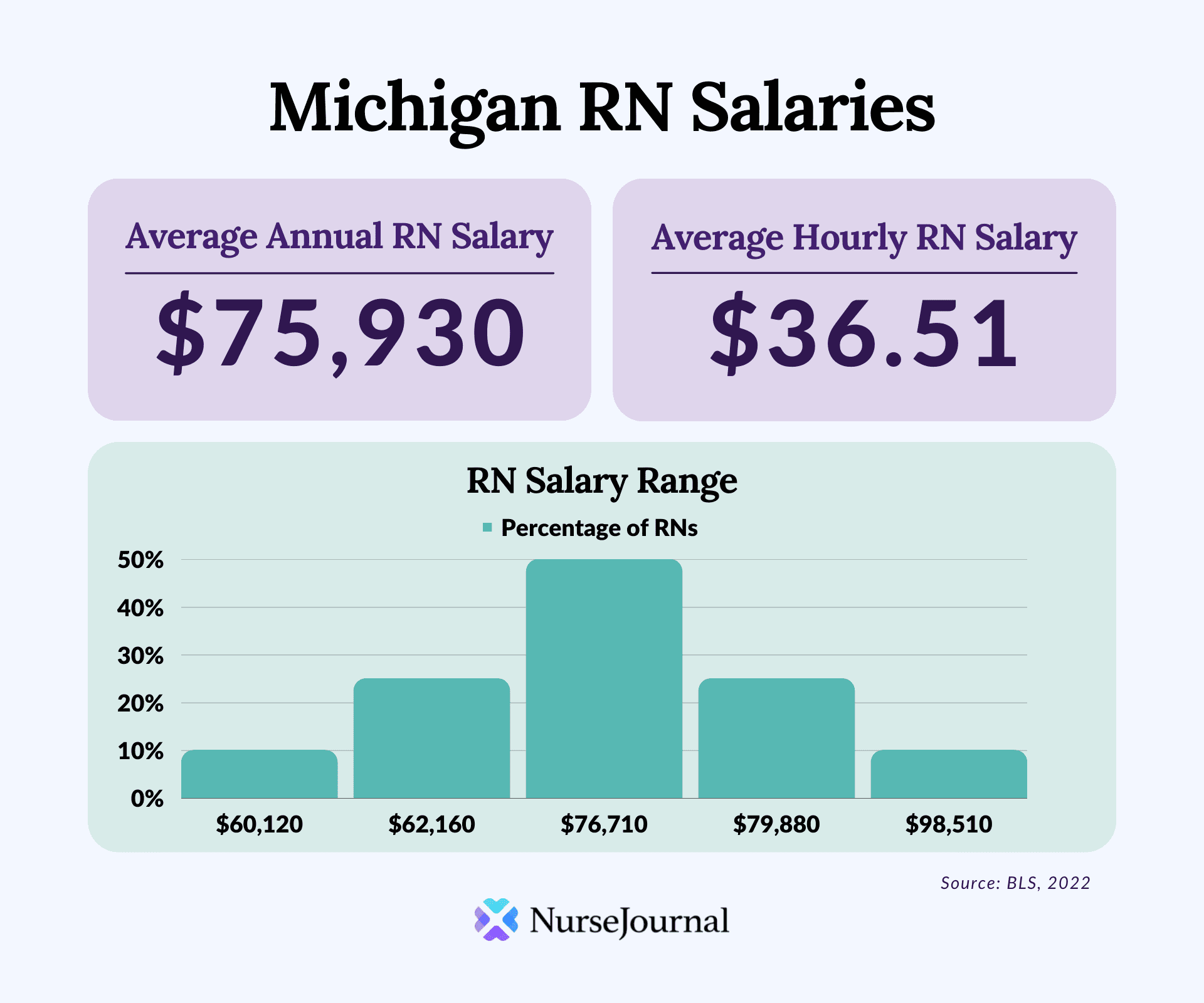A State of Diverse Opportunities
Michigan, a state with a rich industrial history and a promising future, offers a diverse job market with a range of salary potentials. While the cost of living can vary significantly across different regions, understanding the salary landscape is crucial for both job seekers and employers.
Industry-Specific Salaries
- Automotive Industry: Michigan’s automotive industry, centered around Detroit, remains a dominant force, offering high-paying jobs in engineering, design, manufacturing, and research and development. Traditional automakers like Ford, General Motors, and Stellantis continue to be major employers, while a growing number of electric vehicle and autonomous vehicle companies are emerging, creating new opportunities for skilled professionals.
- Healthcare: The healthcare sector, encompassing hospitals, clinics, pharmaceutical companies, and medical device manufacturers, is another vital industry in Michigan. It offers a wide range of job opportunities, from frontline healthcare workers to highly specialized medical professionals. The state’s strong emphasis on healthcare research and innovation has led to significant advancements and job growth in this sector.
- Technology: Michigan’s tech sector, particularly in cities like Ann Arbor and Detroit, is experiencing rapid growth. This sector offers high-paying jobs in software engineering, data science, cybersecurity, artificial intelligence, and other emerging technologies. The University of Michigan and Michigan State University, along with a growing number of tech startups, are driving innovation and creating new job opportunities.
- Education: The state’s numerous universities and colleges, including the University of Michigan and Michigan State University, offer a range of job opportunities in teaching, research, and administration. These institutions often provide competitive salaries and excellent benefits packages, especially for faculty members and researchers.
- Manufacturing: Beyond the automotive industry, Michigan has a strong manufacturing sector, including aerospace, defense, and other industrial sectors. These industries offer skilled trade jobs, engineering positions, and management roles. The state’s focus on advanced manufacturing and automation has led to increased demand for skilled workers in these areas.
Geographic Variations in Salaries
- Southeast Michigan: The Southeast Michigan region, including Detroit, Ann Arbor, and Grand Rapids, is the most populous and economically developed region in the state. It offers the highest average salaries, particularly in the automotive, technology, and healthcare sectors. The concentration of major corporations, research institutions, and universities in this region contributes to higher earning potential.
- Southwest Michigan: The Southwest Michigan region, including Kalamazoo and Battle Creek, is known for its manufacturing and agriculture industries. While salaries may be lower than in Southeast Michigan, the cost of living is generally lower as well. The region’s strong focus on manufacturing and distribution offers stable employment opportunities, particularly in skilled trades and logistics.
- Northern Michigan: Northern Michigan, including Traverse City and Petoskey, is a popular tourist destination. The tourism industry, as well as healthcare and education, are major employers in the region. While salaries may be lower than in urban areas, the lower cost of living and the natural beauty of the region can attract individuals seeking a more balanced lifestyle.
Factors Influencing Salary Growth
- Education and Certifications: Advanced degrees and industry certifications can significantly boost earning potential, especially in fields like engineering, technology, and healthcare.
- Professional Development: Continuous learning and skill acquisition are crucial for career advancement and salary growth. Staying up-to-date with industry trends and acquiring new skills can lead to promotions and higher-paying positions.
- Networking: Building strong professional relationships can open doors to new opportunities and help individuals advance their careers. Attending industry events, joining professional organizations, and leveraging online platforms like LinkedIn can be effective strategies for networking.
- Negotiation Skills: Effective negotiation can help individuals secure higher salaries and better benefits packages. It’s important to research industry standards, understand one’s value, and confidently advocate for fair compensation.
- Flexibility: Remote work and freelance opportunities can offer additional income streams and career flexibility, especially in technology and creative fields. The ability to work remotely can allow individuals to take advantage of higher-paying jobs in other regions or start their own businesses.
Leveraging Online Resources
To gain a more precise understanding of salary ranges and trends in specific industries and locations, consider utilizing these online tools:
- Bureau of Labor Statistics (BLS): Provides detailed data on wages, employment, and industry trends.
- Glassdoor: Offers real-time salary information, company reviews, and job postings.
- Payscale: Provides salary comparisons based on job title, experience, location, and company size.
- LinkedIn: A powerful networking tool that can help you connect with industry professionals and learn about salary trends.
By understanding the nuances of Michigan’s salary landscape and leveraging the available resources, individuals can make informed career decisions and work towards achieving their financial goals.




